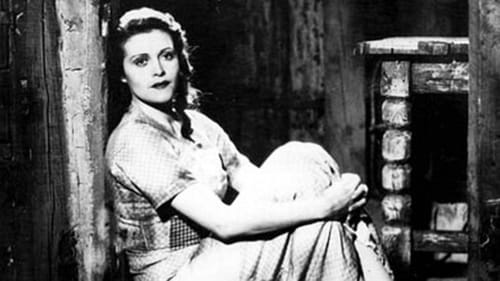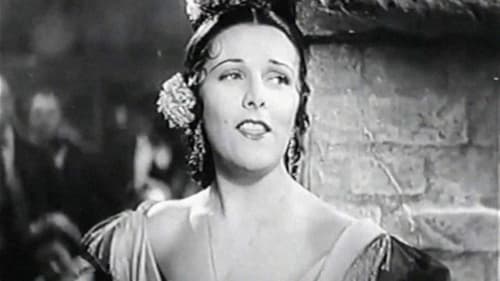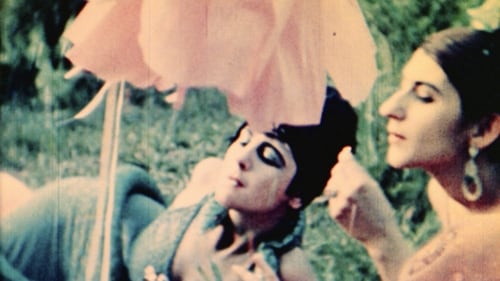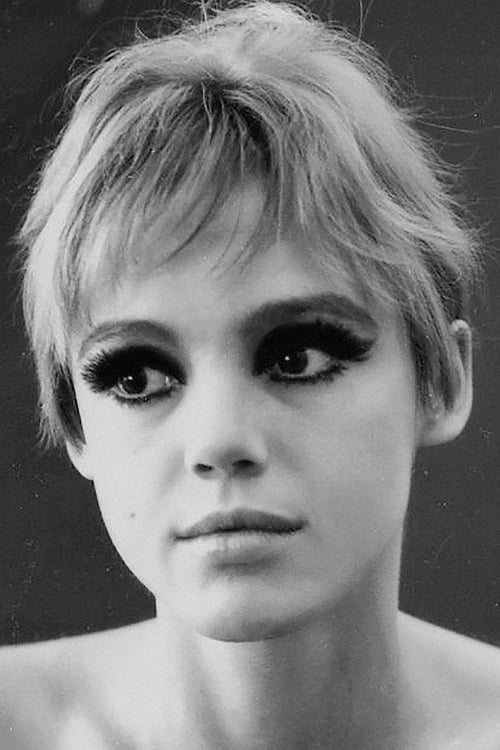Poor Little Rich Girl (1965)
Género : Drama, Documental
Tiempo de ejecución : 1H 6M
Director : Andy Warhol
Sinopsis
A young, jobless woman stays in bed, reads, talks on the phone, smokes cigarettes, makes fresh coffee, and tries on some clothes from a large wardrobe.

Two reels of mis-takes in shooting Part II of 3RD DEGREE. Film was loaded in camera improperly and the image slides about off-center and becomes blurred – creating some rather amusing and mysterious imagery. A made “found” object. —ubu.com

A beautiful young drifter comes to a small village and battles Death itself to save the man she loves.

DOGMA 95 exists for over 10 years now. But it has been living in the Balkans forever. A desperate filmmaker swears it's time to kill DOGMA . But how far will she go to make it come true?

Adaptación del clásico de la literatura española "El Lazarillo de Tormes", donde se presenta a un antihéroe que debe emplear toda su astucia para poder alimentarse y vivir algo mejor de lo que sus amos le permiten. Se centra sólo en la infancia del personaje.

A survival, silent black & white film shot with a hand camera, a journey into Philippe Garrel's intimate family album featuring the two women who counted in his cinematographic life: Nico and Zouzou.

A young bride escapes her wedding ceremony with a stranger and together they set off on an epic journey though increasingly bizarre lands. They encounter talking animals and mournful exhibitionists, converse with a discoursing rock, journey through a surrealist's psychedelic hotel, instigate a prison riot, escape from naked cannibals living in a tree and battle a wind-up midget dictator!

Singer Oksana has lost her beloved in the war. Everyone thinks he perished, but actually he was taken prisoner, then ran away, hid, fell into American hands, and… Finally, he returns to his village, and meets Oksana. —Yerevan International Film Festival

Hilarious and sobering account of the first time an international group of Kim Jong Il supporters visits North Korea. In 12 days, the 22 participants travel through a country full of monuments, propaganda and poverty. What begins as a idealistic magical mystery tour gradually turns into a nightmare.

La acción se desarrolla en Andalucía durante los años de la ocupación francesa. Carmen, la cantante más famosa del país, es una mujer inconstante que reparte su amor entre tres hombres. Uno de ellos se llama Antonio, antiguo capitán del ejército regular que ahora es jefe de una partida de guerrilleros que asalta a las patrullas francesas. El segundo hombre que comparte el amor de Carmen es José, un sargento de las tropas francesas. Su tercer amor es un famoso torero de Ronda.

The love story of Dan (a beautiful young woman) and Gu (a humpback), servants from two separate households in Ha Dong, Vietnam who have suffered most of their lives at the hands of their cruel masters. The couple flee south soon after Gu presents Dan with a wedding gift - the precious white silk dress his mother had owned (his one valuable possession), while he promises her a proper marriage someday in the future. The couple arrive in the seaside town of Hoi An and build a new life, with Dan ultimately giving birth to 4 daughters. Despite struggling through immense poverty and hardships, the family is happy and fulfilled as long as they have each other, but the horrors of the encroaching war brings tragedy and threatens to tear them apart.

The feature length Normal Love is Jack Smith’s follow up to his now legendary film Flaming Creatures. This vivid, full-color homage to B-movies is a dizzying display of camp that clearly affirms Smith’s role as the driving force behind underground cinema and performance art of the post-war era. The cast includes Mario Montez, Diane de Prima, Tiny Tim, Francis Francine, Beverley Grant and John Vaccaro. Smith was known to constantly re-edit the film, often during screenings as it was still unspooling from the projector. This print has been restored under the supervision of Jerry Tartaglia and is provided by Filmmakers Co-operative in New York City.

Filmmaker Hu Jie uncovers the tragic story of a teacher beaten to death by her students during the Cultural Revoution. In 1966, the Cultural Revolution exploded throughout China, as Mao's Red Guards persecuted suspected Rightists. Bian Zhongyun, the vice principal of a prestigious school in Beijing, was beaten to death by her own students, becoming one of the first victims of the revolutionary violence that would engulf the entire nation.

James Broughton's creation myth, THIS IS IT, places a 2-year-old Adam and a bright apple-red balloon in a backyard garden of Eden, and works a small miracle of the ordinary. And since that miracle is what his film is about, he achieves a kind of casual perfection in matching means and ends.

Each film frame is a different image from the Sears Roebuck mail order catalogue. The film places pictures of the objects sold by Sears to the consumer society side by side with pictures of female models

A series of tail ends of varied strips of film, with sometimes recognizable images dissolving into light flares, appear to run through and off of a projector. A romantic "narrative," suggesting an "ending," is inferred.

A film exploration of the work and aesthetic concepts of Yayoi Kusama, painter, sculptor, and environmentalist, conceived in terms of an intense emotional experience with metaphysical overtones, an extension of my ultimate interest in a total fusion of the arts in a spirit of mutual collaboration. —Jud Yalkut

En la Berlín moderna (1987), Frau Kutowski se vuelve loca, creyendo que es la notoria (real) Anita Berber, una bailarina de arte desnuda / drogadicta / figura escandalosa de Berlín posterior a la Primera Guerra Mundial. (Berber murió de tuberculosis en 1928, después de haber logrado un éxito y un reconocimiento significativos en todo el mundo de la danza). Frau Kutowski es internada en un hospital psiquiátrico, donde, en su opinión, representa los últimos días de Berber, incluso en sus fantasías, el personal y los pacientes del hospital. , para representar a los amigos y asociados de Anita.

Set on the landing and the stairs of Zwartjes’ new house, then still empty, in The Hague. The filmmaker suggests a mysterious and complex space by using a ‘floating’ camera to film a number of crawling, creeping personages. (MUBI)

Unos bandoleros asaltan en Sierra Morena la diligencia en que viaja la duquesa de Benmejí, iniciándose entre ésta y el jefe de la partida, Lorenzo, un romance que despierta los celos de Rocío, una gitana que convive con los bandidos. Mientras, el marqués de Peñaflores, capitán de los soldados enamorado de su prima la duquesa, persigue a los bandoleros. Rocío revela al marqués el refugio de Lorenzo y sus hombres, y aprovechando el tumulto de la lucha, mata a la duquesa. Su muerte provocará un cambio de actitud tanto en Lorenzo como en Peñaflores.

Discovered in summer of 1985, of a set of “haiku-imagistic films” I did before coming to my characteristic style, as in Ray Gun Virus; I thought I’d destroyed all these pre-pure films, in about 1969-1970, the time of my separation from my first marriage. The film concerns my marriage, which lasted seven years; it was shot during its first year, when I was a painting student at the University of Denver. It is full of apprehensions, in a montage style which counterposes “opposites”: sexuality and religion; seasonal opposites; hopefulness undercut by fears of eventual separation (the image of a statue of two women, arm in arm, reading a book). I find it visually and kinetically interesting, after all these years. (Paul Sharits) —Canyon Cinema











